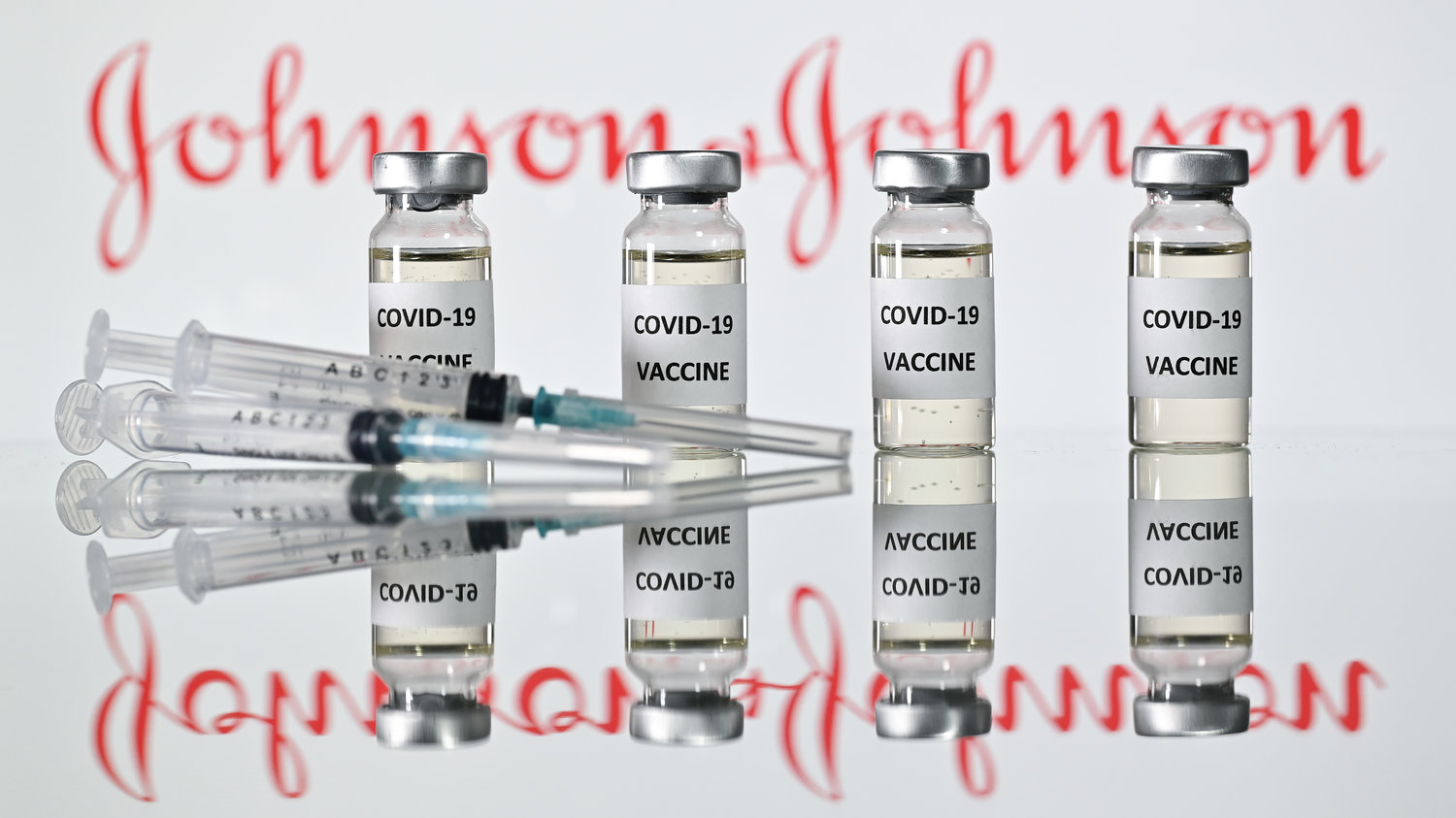
- Details
- By Native News Online Staff
WASHINGTON — Out of an abundance of caution, the Federal Drug Administration (FDA) and Centers for Disease Control and Prevention (CDC) recommended on Tuesday the immediate pause in the use of the Johnson & Johnson vaccine as they review data.
This action comes after six reported U.S. cases of a rare and severe type of blood clot in individuals after receiving the Johnson & Johnson vaccine. All six cases involved women between the ages of 18 and 49 and symptoms occurred 6 to 13 days being vaccinated, according to a CDC statement released on Tuesday. One woman died, and a Nebraska woman is currently hospitalized in critical condition.
The CDC statement says people who have received the J&J vaccine who develop severe headache, abdominal pain, leg pain, or shortness of breath within three weeks after vaccination should contact their health care provider.
Indian Health Service (IHS) says the pause will not have a significant impact on its vaccination plan: Johnson & Johnson/Janssen vaccine makes up approximately 1.5% percent of Indian health system's recorded shots in arms to date and less than 5% across the entire U.S. IHS does not expect this pause to affect IHS’ goal of fully vaccinating 44 percent of its active adult patients by the end of April.
The vast majority of Covid-19 vaccines to distributed to by the Indian health system have been Pfizer and Moderna vaccines.
In reaction to Tuesday's announcement, the Navajo Nation has pause further use of the J&J vaccine until further notice.
“Navajo Area IHS informed us that approximately 4,000 doses of the Johnson & Johnson had been administered on the Navajo Nation prior to today’s announcement and there have been no major side effects reported. We will continue working with the Navajo Department of Health, Navajo Area IHS, and tribal health facilities to monitor the status of those who received this particular vaccine. Our health care experts indicate that today’s announcement by the CDC and FDA does not impact the Pfizer and Moderna vaccines,” Navajo Nation President Jonathan Nez said.
IHS has vaccine safety monitoring systems in place. To date, there have been no cases reported through IHS of the rare and severe type of blood clot seen in some individuals who have received the Johnson & Johnson/Janssen vaccine. IHS employees have been advised to reach out to patients that may already have an appointment scheduled to receive the J&J vaccine and offer Pfizer and Moderna vaccines when available and appropriate.
Johnson & Johnson issued a statement that said there is “no clear causal relationship” identified between blood clots and the vaccine. The pharmaceutical company says it is working closely with regulators to assess the data.
According to Jeff Zients, White House Covid-19 Response Coordinator, this announcement will not have a significant impact on our vaccination plan: Johnson & Johnson vaccine makes up less than 5 percent of the recorded shots in arms in the United States to date.
Zients went on to say the United States has secured enough Pfizer and Moderna doses for 300 million Americans.
“Over the last few weeks, we have made available more than 25 million doses of Pfizer and Moderna each week, and in fact this week we will make available 28 million doses of these vaccines,” Zients said in statement released this morning from the White House. “We are working now with our state and federal partners to get anyone scheduled for a J&J vaccine quickly rescheduled for a Pfizer or Moderna vaccine.”
The majority of the United States’ Covid-19 vaccine supply comes from Pfizer-BioNTech and Moderna. The two companies distribute 23 million doses a week. To date, there have been no significant problems with the two vaccines.
More Stories Like This
After Trump cuts, seeds sit in the warehouseThe joyful responsibility of cutting fish
Trump cuts to University of Alaska programs for Native students worse than previously announced
How to build a food sovereignty lab
Buffalo (almost) officially wildlife on some 2M new acres of Wyoming, a step toward roaming free
Help us defend tribal sovereignty.
At Native News Online, our mission is rooted in telling the stories that strengthen sovereignty and uplift Indigenous voices — not just at year’s end, but every single day.
Because of your generosity last year, we were able to keep our reporters on the ground in tribal communities, at national gatherings and in the halls of Congress — covering the issues that matter most to Indian Country: sovereignty, culture, education, health and economic opportunity.
That support sustained us through a tough year in 2025. Now, as we look to the year ahead, we need your help right now to ensure warrior journalism remains strong — reporting that defends tribal sovereignty, amplifies Native truth, and holds power accountable.
 The stakes couldn't be higher. Your support keeps Native voices heard, Native stories told and Native sovereignty defended.
The stakes couldn't be higher. Your support keeps Native voices heard, Native stories told and Native sovereignty defended.
Stand with Warrior Journalism today.
Levi Rickert (Potawatomi), Editor & Publisher

